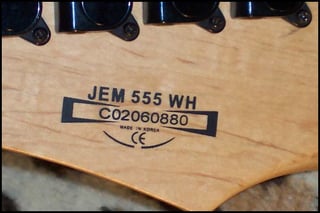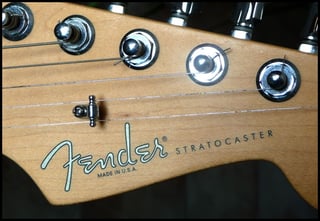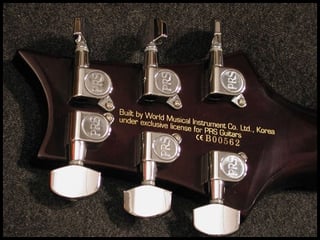The question of where a particular guitar was made often comes up, usually from someone who is doing preliminary research for a future purchase. People who are already players and own a couple of guitars don’t typically ask, they usually know the answer and if they do ask it’s only to verify what they already know. It’s the first-time buyers that show the most curiosity and the question is typically about assurance of quality more than anything else. Recently, it was about something else and this being election season you can probably guess the point that was trying to be made but more on that and how I handled it later.
The guitar manufacturing business is pretty remarkable when you consider a few salient points. Many companies have been around for decades. Quite a few brands and certainly the most iconic of them have family names on the headstock. Think of the tinkerer in the garage who wants to build a better mousetrap, make a better spacesuit glove (true story) or handy type that gets their “me-time” via a do-it-yourself labor of love. The designs and refinements to guitars reflect a DIY culture that drives innovation and guitarists benefit greatly from it. I once read that George Gruhn believes we’re in another “Golden Age” of guitar building and I think he’s right.

Global supply-chains and global manufacturing have made possible high quality instruments at price-points that were hard to imagine even 10 years ago. Almost daily I inform shoppers that guitars have been made in the Far-East for decades and there is intense competition on mainland China for manufacturing contracts. Guitars are received at the U.S. factories or distribution centers, inspected by people State-side whose job is to make sure everything is up to spec, then received and vetted by me at Moore Music before they go up on the wall. So, there are multiple levels of quality-control involved that serve to assure customers of value, reliability and playability. Usually, that’s all that needs to be said on the matter and when I tell my customers that they are getting me and my service with the guitar they have all the assurance they need. Then there was this instance a few weeks ago.
After watching a customer and his buddy take down half a dozen Stratocasters and Telecasters to inspect the headstocks I realized what they were after. They were surprised that I could point to any given guitar and say that one’s U.S. made, that one’s Indonesia, made in Mexico, Korea, etc. The gentleman then said, “They should just shut all that stuff down and bring that manufacturing back home is what they should do”. So, when I politely asked, “When was the last time you dropped $1099 on an American Stratocaster?” he had to stop and think for a minute. Our chat on the merits of U.S manufacturing was friendly and we agreed that America kicks ass making guitars. The resale value of iconic American makes and models bears this out. The market has spoken, there’s real demand for American guitars around the world and that’s something to be proud of isn’t it? However, I had to point out that if I only had U.S. made product to sell, we wouldn’t be able to service the majority of customers out there and the doors would not stay open.

A locally owned and operated independent guitar shop like Moore Music invests right back into the local community in more ways than one. Bottom line, there are winners and losers in our 21st century globalized economy and guitarists and guitar buyers are definitely on the sweeter side of the deal. We’re not going to save U.S. manufacturing one guitar sale at a time but consider the universal appeal of music. That one guitar from wherever it was made in the world can inspire the song and the message that can help change it for the better. That makes it a sweeter deal for us all doesn’t it?

Let us know if you liked this blog:


